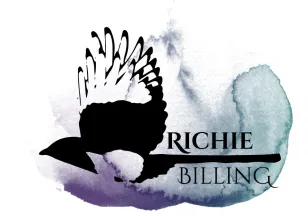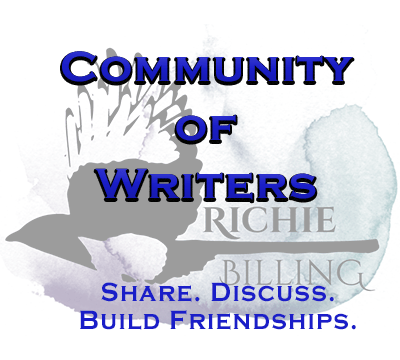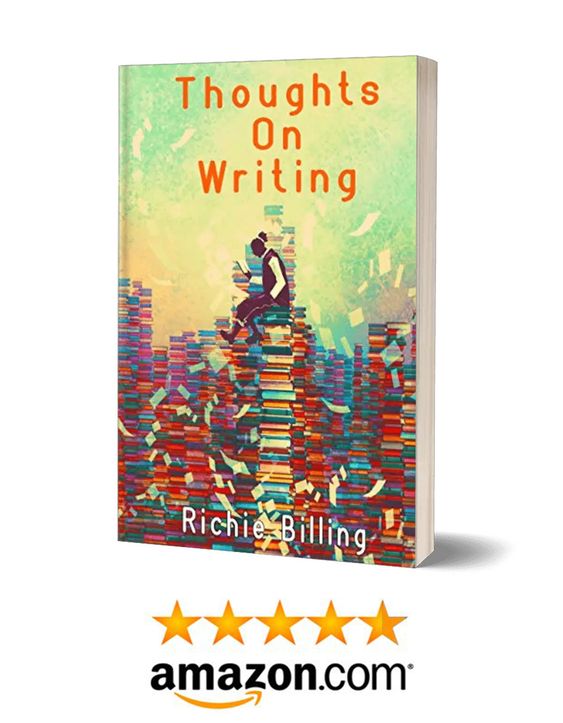When we begin our careers as writers, we undoubtedly take to the internet in the hunt for creative writing tips for beginners. But sometimes this can be counterproductive.
We read articles entitled “things writers should never do”, or “writing rules that all authors should follow.” They can fill us with angst and despair—I don’t do any of these things! I must be an awful writer!
Wrong! The tips and advice that we see in articles and guides, or even in books for writers, should be treated as guidelines.
Why, you may wonder? Well, as you progress through your career as a writer, you’ll discover that there isn’t actually a right way to scribble a book. Instead, we write in ways that suit us, that we find most comfortable.
So in this guide on creative writing tips, we’ll cover finding advice you can trust. And we’ll look at guidance from great writers, quick tips for improving your writing style, what you shouldn’t do, plus lots of links to other guides to help you sharpen your writing skills.
Select A Section
- Where Can You Find Writing Tips That You Can Trust?
- The Most Useful Writing Tips For Beginners
- Writing Tips For Beginners On Different Elements Of Writing
- What Is The Best Writing Tip?
- Writing Tips For On Grammar
- Join An Online Writing Group For More Help And Advice
- Find More Creative Writing Advice
Where Can You Find Writing Tips That You Can Trust?
The internet is awash with articles that tell you to do this and never to do that, especially when it comes to writing. But as we’ll see in this article, and as you’ll no doubt discover in your author journey, you can pretty much ignore them.
Because writing is a fluid craft. It changes with time. For example, fantasy authors in the days of old were much more partial to including worldbuilding info dumps. Now, it isn’t tolerated as much by readers.
What people want from fiction is changing too. Gone are the days of the bad guys who are evil for evil’s sake. Reader seeks more relatable fiction now, as proven by my research into fantasy tropes.
So when it comes to finding creative writing tips for beginners, read every morsel you can find, but don’t listen to them when they say this is something you should always do, or should never do.
The Best Books For Beginner Writers
When it comes to finding writing advice for beginners, you can stock up on books and bookmark webpage after webpage, but how do you know which to listen to?
Well, it all comes down to analysing your sources.
As a digital marketer, I’m fully aware of how Google’s algorithm works. It prioritises quality and user experience over everything else now. So when you search for “creative writing tips for beginners”, for instance, the results that you see on the first page will be high-quality, detailed and informative. You can therefore trust these sources.
When it comes to books, checking reviews left by those who’ve bought it and used it are incredibly useful. For example, the 80+ reviews I’ve received for A Fantasy Writers’ Handbook drive organic sales because people can check out the thoughts of others before purchasing.
Finding book recommendations from successful authors also works well too. In Stein On Writing, for instance, Sol Stein made a few references to an author and playwright called Lajos Egri. I found those references so useful I went off and bought his book, The Art of Dramatic Writing, and now I regard it as one of the best books for writing tips I’ve ever come across.
Some of my favorite craft books include:
- On Writing, Stephen King
- Stein On Writing, Sol Stein
- The Art Of Dramatic Writing, Lajos Egri
- The Art Of Fiction, John Gardner

The Most Useful Writing Tips For Beginners
Some of the best pieces of advice come from the greatest writers that have ever lived. I’ve included links to some fantastic lectures and resources here. Below, you can find some of the best bits of advice for beginner writers I’ve come across, and advice I still turn to now.
1. George Orwell’s Writing Tips For Beginners
When it comes to writing prose, I think George Orwell’s writing tips for beginners are some of the most useful.
Orwell felt compelled to spell out these six simple rules because of what he saw was a wilful destruction of good writing practices on the part of the establishment.
In his lauded essay, Politics and the English Language, published in 1946, Orwell slammed the politicians of the day for using overly complex language that only serves to confuse people.
Orwell’s belief was that writing should be like looking through a clear pane of glass. In essence, the writing itself shouldn’t draw any attention to itself. The story should be clear for the reader to see, follow and enjoy. If they have to break away to look up a word, then you may have run into an issue.
Here are Orwell’s six writing tips:
- Never use a metaphor, simile or other figure of speech which you are used to seeing in print;
- Never use a long word where a short one will do;
- If it is possible to cut out a word, always cut it out;
- Never use the passive [voice] where you can use the active;
- Never use a foreign phrase, a scientific word, or jargon word if you can think of an everyday English equivalent;
- Break any of these rules sooner than say anything outright barbarous.
2. Adjectives and Adverbs
We strive to write beautiful, florid prose rich with imagery. But if a piece is riddled with adjectives and adverbs it can create problems for the reader, as literary agent Noah Lukeman points out:
- A text filled with adjectives and adverbs slows the pace significantly.
- When the writer fills in every last detail it can be demeaning for the reader, assuming they have no imagination of their own.
- When a series of adjectives and adverbs are used they detract from one another.
- Adjectives and adverbs weaken the noun or the verb when quite often the latter is strong enough to stand on their own.
- Writers who overuse adjectives and adverbs tend to use ones they’ve heard before, sacrificing originality.
- Using too many adjectives and adverbs prevents the reader from making the story their own. A lack of detail encourages the reader to fill in the gaps.
But it’s a problem easily fixed! Here are Lukeman’s suggestions:
- Undertake an exercise of cutting your adjectives. Lukeman suggests three places to look to cut adjectives: (1) Places where more than one adjective or adverb is used. Remove all but your strongest, the most unusual. (2) Cut the clichéd adjective, e.g. “a hot day.” (3) If you’ve used any unusual and interesting nouns or verbs, lose the adjective. Have faith in the noun and/or verb!
- Consider replacing an adjective with a comparison, e.g. a metaphor or simile. An example from Lukeman: “He ran a clean, well-organised office.” “He ran his office like a ship.” The occasional use of a comparison enriches your prose writing, making it more relatable for the reader.
- Think of stronger nouns and verbs to eradicate adjectives. For example: “He was a tall man.” “He towered over everyone else.”
This isn’t to say adjectives and adverbs should be banished to the depths of hell. They have their place. Think of them as a fine seasoning. Add too much and it spoils the broth.

3. Showing Instead Of Telling
Don’t just say a character hates someone, show it in their actions. Do their jaw muscles tighten? Do they clench their fists? A piece in which we are merely told about how a character feels isn’t engaging.
In showing us something, you can cut out sentences of info-dumpy description. Lukeman gives a good example. Rather than telling us a character is a thief, why not show him stealing a twenty-pound note? Allowing the reader to read into these actions is infinitely more interesting and engaging.
To overcome this problem, consider the following:
- Look for areas of excessive description, such as when characters are introduced for the first time. What can we glean from a character’s actions?
- Replace information with actions or events. An example provided by Lukeman is to change a sentence which says that a character’s spouse is abusive, to one in which the spouse is attacking the character.
- When thinking of actions to include, seek to achieve some ambiguity. Did a character take a twenty-pound note because they’re a crook, or because they’re hungry and desperate?
Telling does have its place, however, particularly in the likes of short stories. Telling can help progress a plot. Aim for a healthy balance between the two.
4. Avoiding The Passive Voice
When writing first drafts it’s easy to slip into the passive voice. Generally, stories written in the active voice are more engaging. However, we slip into the passive voice almost without thinking, so changing things up can have a huge impact.
Here are some comprehensive resources to help you:
- How to fix and avoid passive voice misuse
- And you can also use my free passive voice checker and converter tool
5. Start With An Interesting Hook And Opening Paragraph
With the opening paragraph, you either win your readers or lose them. A story needs a good hook, something which grabs the reader, and makes them ask questions. In Raymond Carver’s short story, Why Don’t You Dance? the piece opens with this:
“In the kitchen, he poured another drink and looked at the bedroom suite in his front yard.”
Why is there a bedroom suite in his front yard? What kind of drink is he pouring? Alcoholic? Why? From the off, we’re asking questions, and we want to know more.
Another way to create intrigue is with dialogue. When writing dialogue forget about the reader altogether. Live in the minds of the characters. They’re having their own conversation, the contents of which they know. It’s more interesting for the reader to act as a fly on the wall, to encourage them to think about what’s being said, and again to make them ask questions! This is a great method to follow when it comes to mastering dialogue.
Spend time on your opening paragraph, heck your opening page. It’s by far the most important of all. It’s your one shot to win your readers over, to tie them down to your book.
6. “Kill Your Darlings”

You’ve almost certainly heard this before. What does it mean?
You’ve written something you absolutely love—a beautiful sentence or passage of prose, a vivid description of a person or place—but it doesn’t work. Your reader doesn’t get it. It doesn’t fit with the rest of the story. So kill it, banish it from your story. Be as ruthless as Napoleon.
Don’t incinerate those pretty gems, though. Save them in a Word doc or scrapbook; they’ll find their place eventually. This is perhaps my favorite of all the tips on writing and editing covered here because it embodies the ruthlessness you need when it comes to edits. Your story will thank you for it.
7. Get Help From Others
Editing is tough and going at it alone can be a hugely daunting task for writers at any level. At some point, you’re going to hit a wall with your editing, and it’s then that you may find getting the opinions of honest third parties can help. This could be a friend, family member or someone you meet online who’s offered to read it.
The further removed the person is from you, the more honest they’re likely to be. And it’s honesty you need to make those vital improvements.
It’s also important to seek advice from the right kinds of people. While your friends might have good intentions, they aren’t writers (usually) and may not be able to give you feedback on the more technical aspects of your writing. Seeking a fellow author to work with can therefore be beneficial.
8. Learn From The Writers You Love To Read
One of my favorite ways to learn is by looking for advice passed down by the writers and authors I love to read.
It’s one of the reasons I have the Fantasy Writers’ Toolshed podcast, so I can interview brilliant writers and ask them the questions I’ve always wanted to about their craft.
One of the best authors around right now is award-winning bestseller, Adrian Tchaikovsky. Adrian writers both fantasy and sci-fi and not long ago I had a chance to interview him for my podcast. You can listen here:
Writing Tips For Beginners On Different Elements Of Writing
In this section you can find links to some related guides packed with writing tips for beginners which you may find useful, covering a range of topics on the craft.
Writing Characters
- A Guide To Character Development – if you want to learn more about creating characters and growing them in your story, this guide to developing characters will teach you everything you need to know.
- What is Characterization? – this guide covers the art of creating characters from scratch. In it I explore some of the most effective methods of character creation that you can implement right away.
- How To Write A Villain – as well as writing about heroes, it also helps to know how to write a good villain. This guide offers lots of great tips and advice, with examples explored from famous books.
- How To Write Strong Female Characters – this comprehensive guest post from a good writer friend discusses the different methods you can adopt to create strong female characters in your story, plus some tips on what to avoid.
- A Guide To Character Arcs – here you can find out what character arcs are and how you can use them to good effect in your writing
Plotting
- How To Plot a Story – if you want to learn more about plotting a story, be it a short story or novel, this guide offers useful tips and advice on some tried and tested strategies.
- Character Plotting – this guide explores my own approach to plotting a story, one that incorporates the characters and their emotional journies. It also helps you chart the ebbs and flow of conflict in your story, helping you keep the plot dynamic and engaging.
- The Crucible – the Crucible is a tried and tested plotting device. It focuses on locking two opposing characters into a situation or space, such as a Nazi and a Jew trapped in a broken elevator. This guide explains how the strategy works.
- How To Build Suspense – if you feel your story is lacking in the glue that keeps readers hooked, i.e. suspense, this guide offers some easy fixes.
- How To Plan Writing A Story As A Non-Planner – not everyone can plan a story before they write. Pantsers may need a bit of extra help, and this guide is for you if so.
- How To Plan A Novel – an in-depth guide on setting up the framework for your novel
Theme
- How To Write A Premise – Premise and theme both overlap, and this guide offers a more focused look at the former.
- How To Create A Literary Theme – this aspect of writing can be one of the most challenging. Here you can find a simple structure for creating your own themes.
Dialogue
- How To Write Dialogue – a comprehensive guide on writing conversations between characters and how you can make your dialogue sharp and engaging to read.
Viewpoint and Tense
- What Is A Narrative Point Of View? – a comprehensive guide exploring the different narration styles, such as first and third person.
Editing
- A General Approach To Editing – this guide takes a broad look at editing as a whole and offers some vital advice on what to do to get the best results.
- How To Edit A Novel – this guide offers a focused view on editing a novel. It looks at the different elements of editing such a long piece of fiction and also a step-by-step guide.
General Writing Guides
- What Are The Most Hated Rules Of Writing? – this guide offers insights into the most unpopular writing rules, as voted for by fellow writers
- How To Write Romance Scenes – this guide offers lots of important advice on writing more intimate moments between characters.
- A Guide To Passive Voice Misuse – a complete guide to the active and passive voice with tips on how to avoid running foul of contemporary writing conventions. You can also use this free passive voice converter tool here.
- Using The 5 Senses In Writing – this in-depth guide offers insight into incorporating sensory details in your descriptions.
- Sensory Language Examples And Details In Writing – here, you can learn all about the impact sensory language can have, as well as find lists of words and definitions for describing the likes of sight, sound, taste, textures and voices.
- How To Write A Battle Scene – this in-depth guide explores writing the most dramatic and chaotic scenes.
- How To Format A Manuscript – before you send out your finish manuscript to publishers, it needs to be formatted. This guide offers lots of useful advice on the industry standard formatting style known as Shunn.
- What Is StoryOrigin And Why Should Writers Use It? – this comprehensive guide offers insights into the brilliant book marketing platform, StoryOrigin. It even features my interview with the creator, Evan Gow.
- How To Begin Writing A Novel – if you’re looking for inspiration and advice on getting started with your writing project, check out this in-depth guide.
- Discord Writing Groups – a guide on what Discord writing groups are, why you might want to join one, and how you can find the best ones for you.
What Is The Best Writing Tip?
Perhaps the best writing tip is to have an open mind. Absorb all information at your disposal. Analyse it, determine if it is useful or not. Take what you need from it, experiment with using it, and if it doesn’t work, don’t feel like you’re bound to it.
From a practical standpoint, however, that’s not too useful. So my best writing tip is to practice. Write as much as time allows. Push yourself to write different forms, different styles, viewpoints, narratives, perspectives. Try poetry. Try flash fiction. You learn new skills from every different form of writing. It can help to develop a writing routine or schedule to achieve this.
And it’s true what they say. Practice does make perfect. Trust that if you put in the time and effort, you’ll succeed.
Writing Tips On Grammar
Grammar is so important when it comes to writing. When editing, it becomes even more of a consideration. There’s nothing worse than self-publishing a book or submitting it to a publisher or literary agent, looking back at what you’ve sent and spotting a glaring typo. Even studying all of the writing tips known to man cannot save you sometimes.
The good news is, this is something we can easily fix. There’s many a great tool for spotting grammatical errors. Here are some of them below:
- Grammarly – like the classic Microsoft Word spellcheck only miles better. Grammarly not only picks up on spelling and grammatical errors, it highlights any clunky sentences and analyses your writing to let you know where you can improve. I also quite like it’s tone of voice assessment—ranging from joyful to disappointed. Most important of all, Grammarly is free. It does have a paid version which gives you access to lots more tools.
- Hemingway – this is another free app, available to use online or via a desktop application. Hemingway is more of an assessment of your writing as opposed to your grammar, but there’s a bit of an overlap here which is why I’ve included it. It checks for the likes of passive voice, adverbs, and similar to Grammarly, assess your writing and highlights any clunky sentences.
- Google Docs – over the years I’ve grown to love Google Docs. Perhaps the biggest reason is that it saves your work after you type every single word. Never again do you have to worry about losing a file. But when it comes to grammar, I think the Google Docs spellchecker is a winner. I use it everyday in my day job too. I find it great for picking out any simple spelling or grammatical errors.
Perhaps the biggest advantage of using these tools is that you learn the rules of grammar. You can see what it highlights and study the explanations behind why. Over time you’ll become less reliant on them.
Join An Online Writing Group For More Help And Advice
When we begin our writing journey, it can feel like a solo pursuit. We sit in solitude writing our stories. And while that can be a lot of fun, there comes a time when we have to seek the advice and feedback of other authors.
That may seem daunting, but the only way to learn and improve is to get impartial feedback from fresh eyes. Now you could just hire an editor or beta reader. They’ll give you lots of fantastic guidance. But that costs money, and I don’t know if you’ve heard, but writers don’t earn all that much.
One way around this is to work with fellow writers. Over the years I’ve both helped and received help from many a great writer. I’ve learned much and they’ve helped me land successful submissions. It gave me the idea to create a dedicated writing group, a place to share and connect, get feedback and grow together.
Would you like to join us? Just click the button below if so.
Find More Creative Writing Advice
If you’d like to take your learning to the next level to get a degree or qualification in storytelling, I’ve included some informative links below to help.
- Study creative writing with the Open University – UK
- Learn creative writing and poetry with the University of Chicago
For more creative writing tips for beginners, head over to The Writers’ Toolshed, or check out my writing podcast, The Fantasy Writers’ Toolshed.
- 5 Tips to Help Your Child Learn and Succeed at Primary School - February 26, 2024
- The Advantages Of Using An AI Essay Typer Alternative - February 14, 2024
- Advice On Getting Help With Your Homework - January 26, 2024


